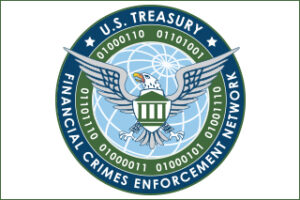BLOG
The U.S. real estate and banking industries have been put on notice to adjust to the new U.S. sanctions against Russia and Russian entities with two recent alerts from the Financial Crimes Enforcement Network (FinCEN), which is the division of the U.S. Treasury Department that combats money laundering in collaboration with international financial authorities.
The March alerts focused in part on identifying suspicious transactions involving real estate. They note that Russians may seek to evade U.S. sanctions by acquiring or selling significant U.S. commercial and residential real estate assets. FinCEN notes that real estate’s high value and investment potential make it a target for layered transactions aimed at concealing buyers/sellers’ true identities. It warns that sanctioned Russians may attempt to purchase or maintain real estate through shell companies or trusts, or to liquidate real estate owned in countries that have imposed sanctions on them.
 The federal agency directs industry members to stay on alert for the purchase, sale, donation or legal ownership transfer of high-value real estate in the name of a foreign legal entity, shell company, or trust; legal entities or arrangements that may have a connection to sanctioned Russian individuals to hide the ultimate beneficiary or the origins or source of the funds; changes to the transaction patterns of a firm located in a country other than the United States, Russia, Belarus and Ukraine, where the new transactions involve convertible virtual currency and Russian-related investments or firms; Russian individuals or entities requesting wire transfers from a non-US (particularly non-Russian) bank to pay for an all-cash purchase; the dilution of equitable interest held in real property by sanctioned Russian individuals, by the addition of, or the transfer of real estate to, an individual not affiliated with the buyer or seller; and the maintenance, purchase or termination of real estate insurance by persons with a known connection to sanctioned Russian individuals.
The federal agency directs industry members to stay on alert for the purchase, sale, donation or legal ownership transfer of high-value real estate in the name of a foreign legal entity, shell company, or trust; legal entities or arrangements that may have a connection to sanctioned Russian individuals to hide the ultimate beneficiary or the origins or source of the funds; changes to the transaction patterns of a firm located in a country other than the United States, Russia, Belarus and Ukraine, where the new transactions involve convertible virtual currency and Russian-related investments or firms; Russian individuals or entities requesting wire transfers from a non-US (particularly non-Russian) bank to pay for an all-cash purchase; the dilution of equitable interest held in real property by sanctioned Russian individuals, by the addition of, or the transfer of real estate to, an individual not affiliated with the buyer or seller; and the maintenance, purchase or termination of real estate insurance by persons with a known connection to sanctioned Russian individuals.
Needless to say, FinCEN’s issuance of two alerts just a couple of weeks apart last month aimed at advising real estate and finance industry members to avoid the evasion of sanctions by Russian companies and individuals highlights the extreme importance of conducting all of the necessary diligence. The federal agency has made it clear that it is imperative for sellers/buyers/lessors to determine the exact identity of parties as well as their beneficial owners.
Our firm’s South Florida real estate attorneys are recommending that all clients carefully review the Office of Foreign Assets Control disclosures and representations made or received by parties in all pending and future real estate transactions, and that those paragraphs be fortified with additional and/or more expansive disclosures to protect the receiving party.
Transacting with a party on an OFAC list can lead to criminal or administrative penalties, in addition to possible defaults such as a termination of lease, termination of property management services, joint venture buyout rights, or loan defaults and foreclosures.
The tactics to evade detection listed in the recent alerts require a high degree of due diligence to discern, and those involved in any real estate deals would be well advised to work with highly qualified and experienced real estate attorneys to ensure that representations made by buyers and sellers with respect to OFAC are as broad as possible. By operating only under the sage guidance of highly experienced real estate legal counsel, parties in transactions are able to utilize the most effective safeguards to ensure they are not engaging in a transaction with a blocked company or individual.
Our firm’s real estate attorneys write about important and timely matters in this blog, and we encourage industry followers to enter their email address in the subscription box on the right to automatically receive all our future articles.

